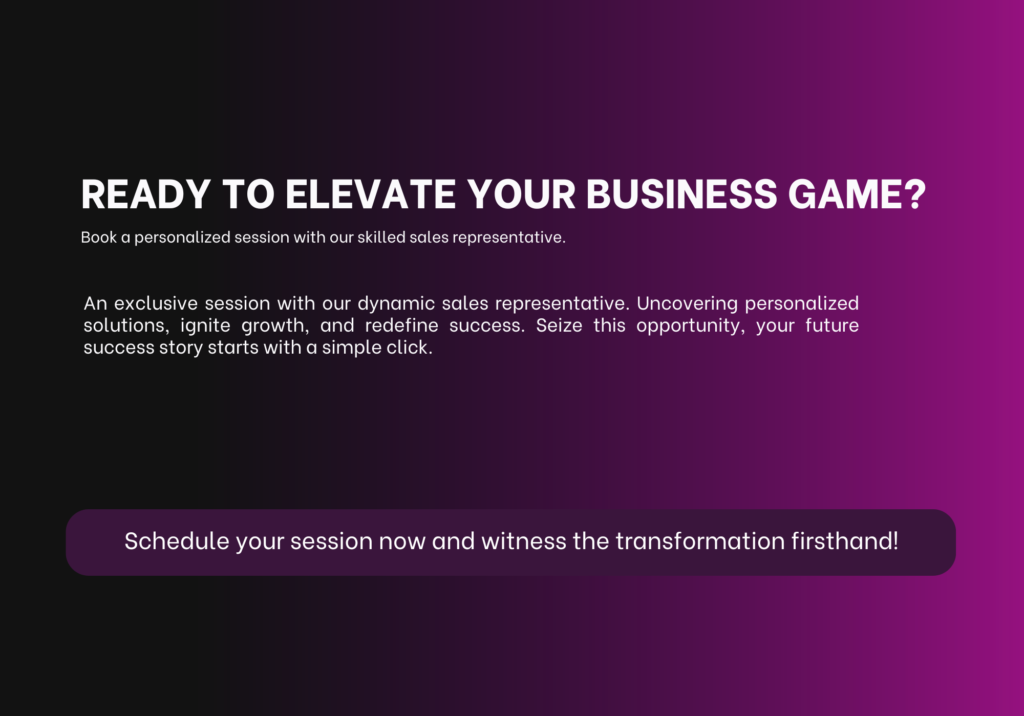In today’s hyper-competitive market, it is for businesses to stand out. A brand-led marketing approach does more than just advertise products or services, it builds a narrative that resonates with target audiences and creates lasting emotional connections. Here’s why marketers should consider adopting this strategy:
Key Benefits of Brand-Led Marketing
1. Establishes a Clear, Consistent, and Authentic Brand Identity
A brand-led approach focuses on creating and maintaining a consistent identity that aligns with the company’s values and mission. This clarity helps consumers understand what the brand stands for, making it easier for them to connect with it on a deeper level. Authenticity is paramount in fostering trust, as consumers today are more discerning and value genuine interactions.
2. Differentiates the Brand from Competitors
In a crowded marketplace, differentiation is key. A brand-led strategy ensures that your brand has a unique voice and position in the market. This differentiation not only attracts attention but also makes it easier for consumers to choose your brand over others.
2A- Develop a Unique Value Proposition (UVP)
Your Unique Value Proposition is a clear statement that describes the unique benefit your product or service offers to customers that competitors do not. A strong UVP should:
– Highlight Unique Features: Emphasize the distinct aspects of your product or service.
– Address Customer Needs: Clearly show how your offering solves specific problems or meets particular needs better than competitors.
– Be Concise and Memorable: Make sure your UVP is easy to understand and remember.
2B- Focus on Brand Storytelling
Storytelling has the power to deeply connect with your audience on an emotional level. A well-crafted brand story can:
– Convey Your Mission and Values: Share the story behind your brand, including your mission, vision, and values.
– Humanize Your Brand: Use authentic narratives that reflect the human side of your brand.
– Engage Emotionally: Create stories that resonate emotionally with your target audience, making your brand more relatable.
2C- Provide Exceptional Customer Experience
An outstanding customer experience can set your brand apart in a significant way. To achieve this:
– Deliver Superior Service: Train your staff to provide excellent service at all touchpoints.
– Personalize Interactions: Utilize customer data to customize interactions and cater experiences to individual preferences.
– Seek Feedback and Improve: Regularly collect customer feedback and use it to enhance your products and services.
2D- Innovate Constantly
Innovation keeps your brand fresh and relevant. Ways to innovate include:
– Product Innovation: Continuously enhance and upgrade your products or services.
– Process Innovation: Streamline and enhance business processes for better efficiency and customer satisfaction.
– Marketing Innovation: Experiment with new marketing techniques and platforms to reach your audience more effectively.
2E- Cultivate a Strong Brand Identity
A distinct and consistent brand identity helps differentiate your brand visually and conceptually. Important aspects of a strong brand identity include:
– Logo and Design: Create a memorable logo and cohesive design elements that reflect your brand’s personality.
– Brand Voice and Messaging: Develop a unique voice and consistent messaging across all channels.
– Consistency: Ensure all brand elements are consistent in every customer interaction, from online presence to physical stores.
2F- Leverage Social Proof
Social proof, such as customer reviews, testimonials, and case studies, can enhance your brand’s credibility. To utilize social proof effectively:
– Showcase Testimonials: Highlight positive testimonials from satisfied customers.
– Use Influencers: Partner with influencers who align with your brand values to reach a wider audience.
– Share Success Stories: Publish case studies that demonstrate the success customers have achieved with your product or service.
2G- Build a Community
Creating a community around your brand fosters loyalty and differentiation. Strategies to build a community include:
– Engage on Social Media: Interact consistently with your audience on social media platforms.
– Create Loyalty Programs: Develop loyalty programs that reward repeat customers.
– Host Events and Webinars: Organize events and webinars to interact with your audience and provide value.

3. Builds Brand Loyalty and Trust
Brands that consistently deliver on their promises build stronger relationships with their customers. A brand-led approach fosters loyalty by consistently meeting or exceeding customer expectations, which in turn leads to higher retention rates.
The Importance of a Brand-Led Approach to Foster Customer Loyalty
Brands that consistently deliver on their promises build stronger relationships with their customers. A brand-led approach fosters loyalty by consistently meeting or exceeding customer expectations, which in turn leads to higher retention rates. Here’s how a brand-led approach can enhance customer loyalty and retention:
Consistent Brand Experience
Consistency is key in building trust and loyalty. A brand-led approach ensures that every interaction a customer has with your brand is consistent in terms of message, quality, and service. Unified messaging, quality assurance, and excellent customer service all contribute to a reliable and trustworthy brand experience.
Emotional Connection
Creating an emotional connection with customers makes them more likely to remain loyal. Brand storytelling, personalized experiences, and active customer engagement help build strong emotional bonds. This connection fosters a sense of loyalty and belonging among customers.
Delivering on Promises
Keeping promises is fundamental to building trust. By setting clear expectations, ensuring consistent delivery, and maintaining transparency, a brand-led approach reinforces customer trust. When customers know they can rely on your brand, their loyalty deepens.
Building Brand Advocates
Loyal customers often become brand advocates who promote your brand through word-of-mouth and on social media. Implementing loyalty programs, referral incentives, and encouraging user-generated content can turn satisfied customers into enthusiastic promoters of your brand.
Continuous Improvement
A brand-led approach involves continuously improving your products, services, and customer interactions based on feedback and market trends. Regularly collecting customer feedback, staying informed about market dynamics, and investing in innovation ensure that your brand remains relevant and meets evolving customer needs.
Creating a Customer-Centric Culture
A brand-led approach fosters a customer-centric culture within your organization. Training employees to understand and prioritize customer satisfaction ensures that every team member is aligned with your brand values and committed to delivering exceptional experiences.
4. Enhances Brand Recall and Recognition
A consistent and well-defined brand identity enhances recall and recognition, making your brand more memorable. This is crucial for staying top-of-mind with consumers, especially when they are ready to make a purchase.
5. Facilitates Premium Pricing Strategies
A strong brand identity often allows companies to command higher prices. Consumers are willing to pay a premium for brands they perceive as valuable and trustworthy. This perception is built through consistent quality, superior customer service, and effective marketing. When consumers believe they are getting more value, they are more likely to pay higher prices.
A strong brand identity fosters customer loyalty, translating into repeat business. Loyal customers are less sensitive to price changes because they trust and value the brand.
Resilience to Economic Downturns
- During economic downturns, trusted brands can retain customers who cut back on other, less-essential expenditures. This resilience is a significant advantage for brands with a strong identity.
Brand equity is the value that a brand contributes to a product or service. High brand equity means that customers are willing to pay more for a product simply because of the brand name. This makes consumers less sensitive to price changes, as they perceive the brand as delivering unmatched quality and value. Brands with a strong identity often provide a superior customer experience, further justifying premium pricing. Personalized service and consistent quality ensure that customers feel their investment in the brand is worthwhile.
Unique Selling Proposition (USP)
- A strong USP tied to the brand’s identity can convince consumers that they are getting something unique and valuable. This differentiation is key to justifying higher prices.
Brand Loyalty Programs
- Exclusive offers and rewards for loyal customers reinforce the brand’s value and encourage repeat purchases at premium prices. These programs enhance customer retention and foster long-term loyalty.
Case Studies Highlighting the Impact of Brand-Led Marketing
Apple Inc.: Apple’s unwavering commitment to innovation, design, and user experience has cultivated a devoted customer base and a premium brand image. This brand-led approach not only differentiates Apple but also justifies its premium pricing strategy.
Nike “Just Do It” Campaign: This iconic campaign did more than just advertise sportswear, it established Nike as a brand that empowers athletes, substantially increasing its market share and resonating with a diverse consumer base.
Dove Real Beauty Campaign: Dove’s emphasis on inclusivity and authenticity in its Real Beauty campaign changed the conversation around beauty standards. This brand-led approach not only set Dove apart but also drove increased sales and brand loyalty.
Airbnb “Live There” Campaign: By focusing on the experience of living in a place rather than just visiting, Airbnb’s “Live There” campaign distinguished the brand in the crowded travel industry, significantly boosting engagement and bookings.
Adopting a brand-led marketing approach offers immense benefits, from establishing a clear, authentic identity to enhancing brand recall and enabling premium pricing strategies. By focusing on creating a unique market position and building emotional connections with consumers, brands can achieve lasting success.
Want to see how a brand-led approach can transform your business? Contact us today to get started on building a brand that resonates, differentiates, and captivates.

